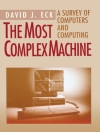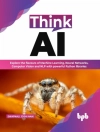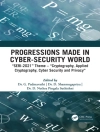This book examines the contributions of the transhumanism approach to technology, in particular the contributed chapters are wary of the implications of this popular idea.
The volume is organized into four parts concerning philosophical, military, technological and sociological aspects of transhumanism, but the reader is free to choose various reading patterns. Topics discussed include gene editing, the singularity, ethical machines, metaphors in AI, mind uploading, and th...
Table of Content
Part I: Philosophical Aspects.- Aspects of Mind Uploading.- Transhumanism as a Derailed Anthropology.- Transhumanism and Philosophy of Technology.- Senseless Transh...
Buy this ebook and get 1 more FREE!
Language English ● Format PDF ● Pages 244 ● ISBN 9783030565466 ● File size 3.6 MB ● Editor Wolfgang Hofkirchner & Hans-Jörg Kreowski ● Publisher Springer International Publishing ● City Cham ● Country CH ● Published 2020 ● Downloadable 24 months ● Currency EUR ● ID 7711609 ● Copy protection Social DRM












